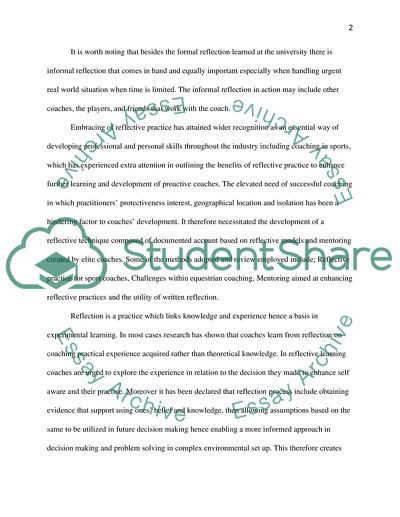Cite this document
(The Role of Reflective Practice in the Professional Development of Term Paper, n.d.)
The Role of Reflective Practice in the Professional Development of Term Paper. Retrieved from https://studentshare.org/sports-and-recreation/1828808-sports-coaching-a-critical-review-of-the-role-of-reflective-practice-in-the-professional-development-of-a-sports-coacheducator
The Role of Reflective Practice in the Professional Development of Term Paper. Retrieved from https://studentshare.org/sports-and-recreation/1828808-sports-coaching-a-critical-review-of-the-role-of-reflective-practice-in-the-professional-development-of-a-sports-coacheducator
(The Role of Reflective Practice in the Professional Development of Term Paper)
The Role of Reflective Practice in the Professional Development of Term Paper. https://studentshare.org/sports-and-recreation/1828808-sports-coaching-a-critical-review-of-the-role-of-reflective-practice-in-the-professional-development-of-a-sports-coacheducator.
The Role of Reflective Practice in the Professional Development of Term Paper. https://studentshare.org/sports-and-recreation/1828808-sports-coaching-a-critical-review-of-the-role-of-reflective-practice-in-the-professional-development-of-a-sports-coacheducator.
“The Role of Reflective Practice in the Professional Development of Term Paper”, n.d. https://studentshare.org/sports-and-recreation/1828808-sports-coaching-a-critical-review-of-the-role-of-reflective-practice-in-the-professional-development-of-a-sports-coacheducator.


